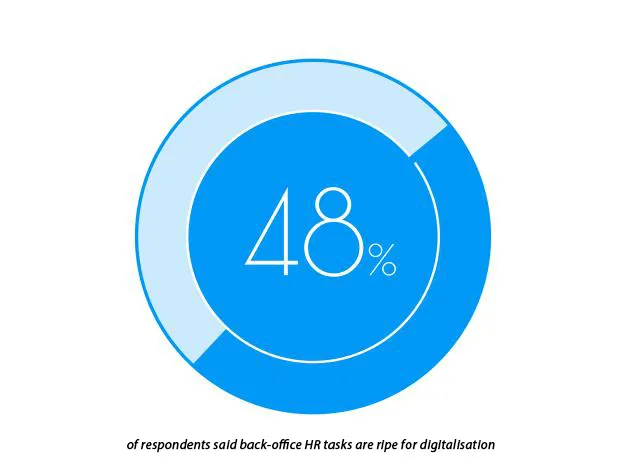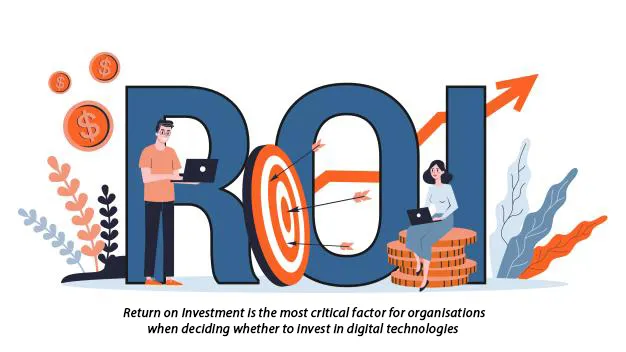
Menu

Menu

In the last week of October, PwC Middle East and SAP released the results of their HR Digital Survey 2020. This survey covered more than 600 executives and HR professionals from various industries and countries across the Middle East. Specifically, it focused on understanding the steps organizations need to take to transform the role of HR into a more strategic, value-adding function. In terms of respondents by location, 39% were from the United Arab Emirates, 27% from Saudi Arabia, 10% from Egypt, 8% from Qatar, 11% from other Middle East countries, and 5% from outside the region.
Although the survey was conducted between February and June 2020, it was adjusted later to account for the impact of the COVID-19 pandemic. Given that many organizations are under increasing pressure due to this pandemic, this survey comes at the perfect time. Companies of all sizes are eager for information that can support them in making changes to their business models and practices.

Middle East governments have led the way in minimizing the spread of COVID-19. Consequently, their response has resulted in the introduction of mass remote working supported by digital technology. As a result, organizations have had to rapidly adapt to the new “norm.” Notably, 72% of survey participants indicated that the pandemic has accelerated their digital transformation.
The impact of the pandemic has been felt across all business operations. This shift has led to a response driven by the CEOs of these organizations. In fact, survey results show that CEOs are identified as key sponsors of digital transformation. Moreover, they are 4 to 10 times more likely to lead their organization’s transformation efforts than any other senior executives.
Now, more than ever, it is critical for HR teams to support the organization. They must ensure that their processes are efficient and effective while maximizing the use of technology. This approach aims to deliver flexible, adaptable, and speedy business solutions and services. Essentially, this means a complete change in company culture and an acceptance of change as the new norm.

The survey results indicate that 48% of respondents believe the HR function will be expected to support the digital transformation of the whole organization. Specifically, they will drive changes in company culture and mindset. However, the question remains: Are HR teams ready to meet this challenge?
Survey results reveal that HR departments still have significant work to do to capture the full benefits of digital transformation. For instance, only 9% of participants reported that their organizations are innovating in HR using digital technologies. In addition, 55% feel that HR’s biggest contribution to the overall digital transformation will be in digitalizing HR processes.

Furthermore, recent surveys indicate that 33% of respondents believe that the future focus of HR should be on developing and coaching talent. In addition, 31% think HR should act as the change leader of the organization, promoting a culture of adaptability and continuous improvement. This proactive stance is crucial, as it allows HR to not only support employees in their growth but also to align talent development strategies with overall business goals. Traditionally, in Middle East companies, HR departments have primarily served as transactional service providers. For example, they organize recruitment and arrange visas for overseas workers, among various routine tasks that can consume valuable resources. However, with the changing dynamics of the workforce, there is an urgent need for HR to evolve beyond these transactional roles and become strategic partners who can drive organizational success.
Now, more than ever, there is a significant opportunity to use technology to support digital transformation in HR practices. Moreover, this includes automating processes such as CV screening, assessments, and training programs, which can significantly enhance efficiency and reduce human error. By utilizing an HR Management System (HRMS) to carry out repetitive administrative tasks, organizations will free up both time and resources. As a result, HR can focus on a more strategic and value-added direction that emphasizes talent development and organizational growth. Consequently, this shift will drive engagement, enhance talent retention, and facilitate upskilling while improving the employee experience throughout the entire employee lifecycle—from recruitment to retirement. Additionally, leveraging data analytics through HR technology can provide insights into workforce trends, helping HR to make informed decisions that benefit both employees and the organization.
This is an ideal opportunity for new players in the HRMS market, such as HRBluSky, to make their mark. By leveraging innovative technologies, they are bringing a fresh perspective to HR through the use of AI and other leading-edge solutions. Furthermore, these providers facilitate new and creative ways of working, including the management of outsourced service provision, which can lead to increased efficiency and flexibility. In doing so, they enable HR teams to transition from traditional roles to becoming proactive partners in driving organizational success. Moreover, the integration of advanced analytics and AI-driven insights allows HR to better predict employee needs and tailor programs that foster engagement and retention. Ultimately, by embracing these technological advancements, organizations can not only streamline their HR functions but also cultivate a workplace culture that values innovation, collaboration, and employee well-being.

The survey highlights organizational culture and resistance to change as the biggest obstacles to digital transformation (55%). Additionally, budget restrictions closely follow at 51%. Interviewees also noted the impact of not having enough people with digital skills. These individuals are essential to support digital transformation and maintain systems once they are in place.
Clearly, this situation puts an onus on HRMS providers. They must ensure their products support HR needs for efficiency, effectiveness, and innovation. At the same time, it is important to appreciate the need for appropriate pricing models and low-maintenance platforms.
The fact that CEOs are viewed as the drivers of digitization suggests a highly centralized decision-making structure. Consequently, this implies that HR needs to actively engage with CEOs. Moreover, digital investment in the core business is often prioritized, while support functions—including HR—are frequently overlooked by IT teams. Therefore, HR teams must make a clear business case for driving digitization in their area of responsibility. Ultimately, this proactive approach can help elevate the role of HR and ensure that it aligns with the overall digital transformation strategy of the organization.
Respondents highlighted that HR departments need more digital reskilling than other functions. This suggests that HR is not regarded as a core area in digitalization programs across organizations. Consequently, HR teams require upskilling so that technology providers can collaborate effectively with them to transform the function into one that is more digitally enabled. Prior to COVID-19, the HR activities that respondents believed would be most affected by digital disruption included recruiting and employer branding, followed by training and development, and then performance management. However, during the crisis, there was a shift in perception, with training and development becoming the most popular choice, followed by performance management, and then recruiting and employer branding.

Repetitive back-office HR functions and services, such as payroll, are often still carried out manually and are the most likely to be automated. Moreover, many HR teams in the Middle East use technology for efficiency and automation rather than innovation. In fact, only 10% of survey participants believe the focus of HR should be as a provider of HR services. By contrast, using technology to automate repetitive and high-volume administrative transactions helps HR to shift focus in a more strategic direction. Additionally, it drives upskilling and changes the skill set required for HR professionals.
HR teams that digitally transform become true business partners. As a result, they provide the optimum employee experience, support talent development, and attract and retain top talent.
What if you were able to invest in digitising your HR function while reducing overall costs and improving performance? HRBluSky offers a unique solution to help you re-focus your HR function by simplifying processes, shifting technologies to the cloud, and embedding wider digital HR solutions, such as self-service, automation, and AI.
Alignment
Article
Audit
Automation
Benefits
Candidate
Communication
Compliance
Digitalisation
Digital Technology
Diversity
Emirates Id Application
Employee Experience
ESS
Feedback
Health and Safety
HRMS
HR Strategy
HR System UAE
Human Resource Management
Human Resource Management Systems
Job Roles
Learning and Development
Onboarding
Outsource
Payroll
Payroll Management System
Payroll Processing
Performance
Performance Management
Personalisation
Recruit
Recruiting
Recruitment
Remote Working
Rewards
Security
Service Providers
Skills
Smart
Survey
Virtual
Visa Cancellation
Work Environment
Workforce
© 2026 Pruvity HR Solutions Pvt Ltd, Madurai, India